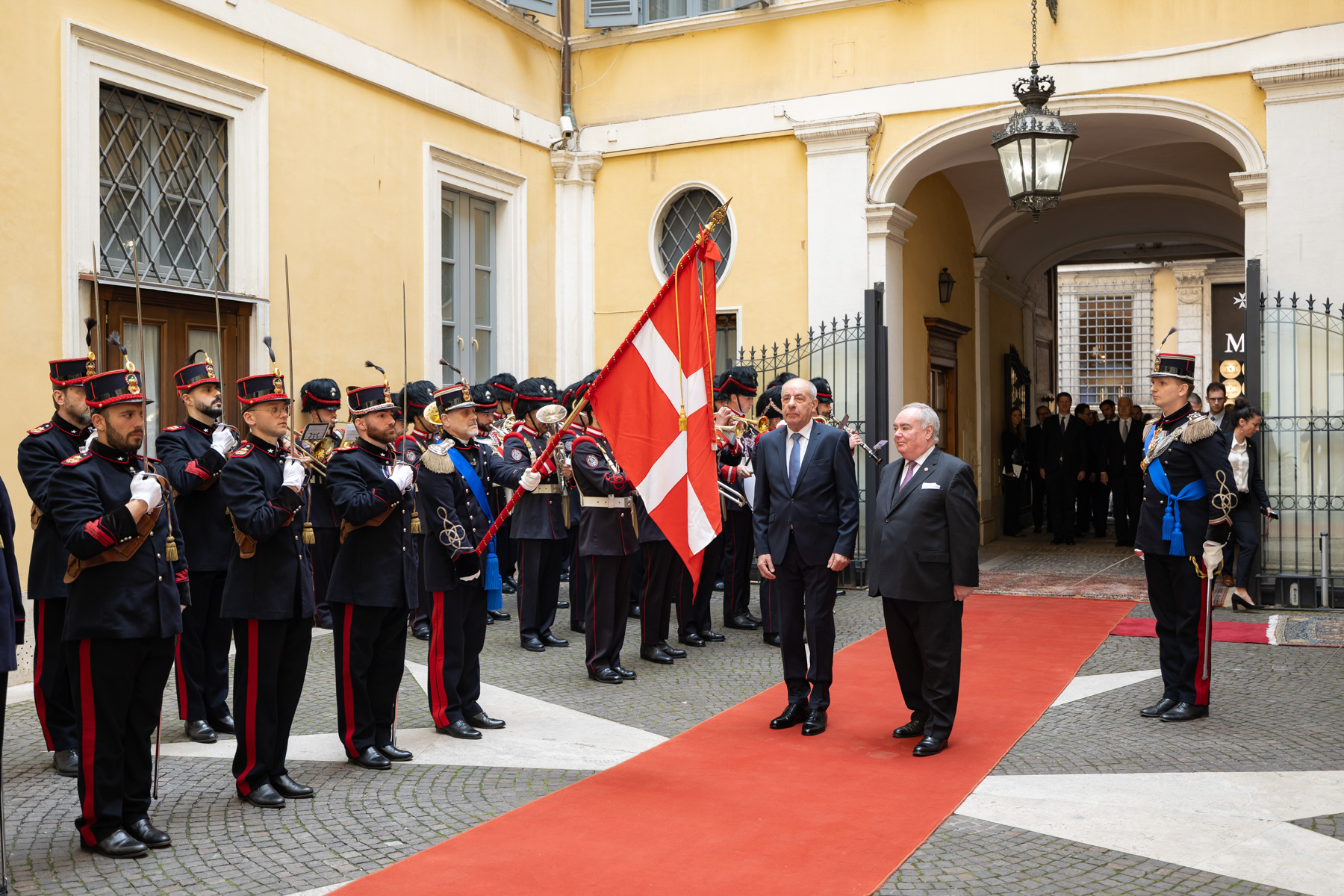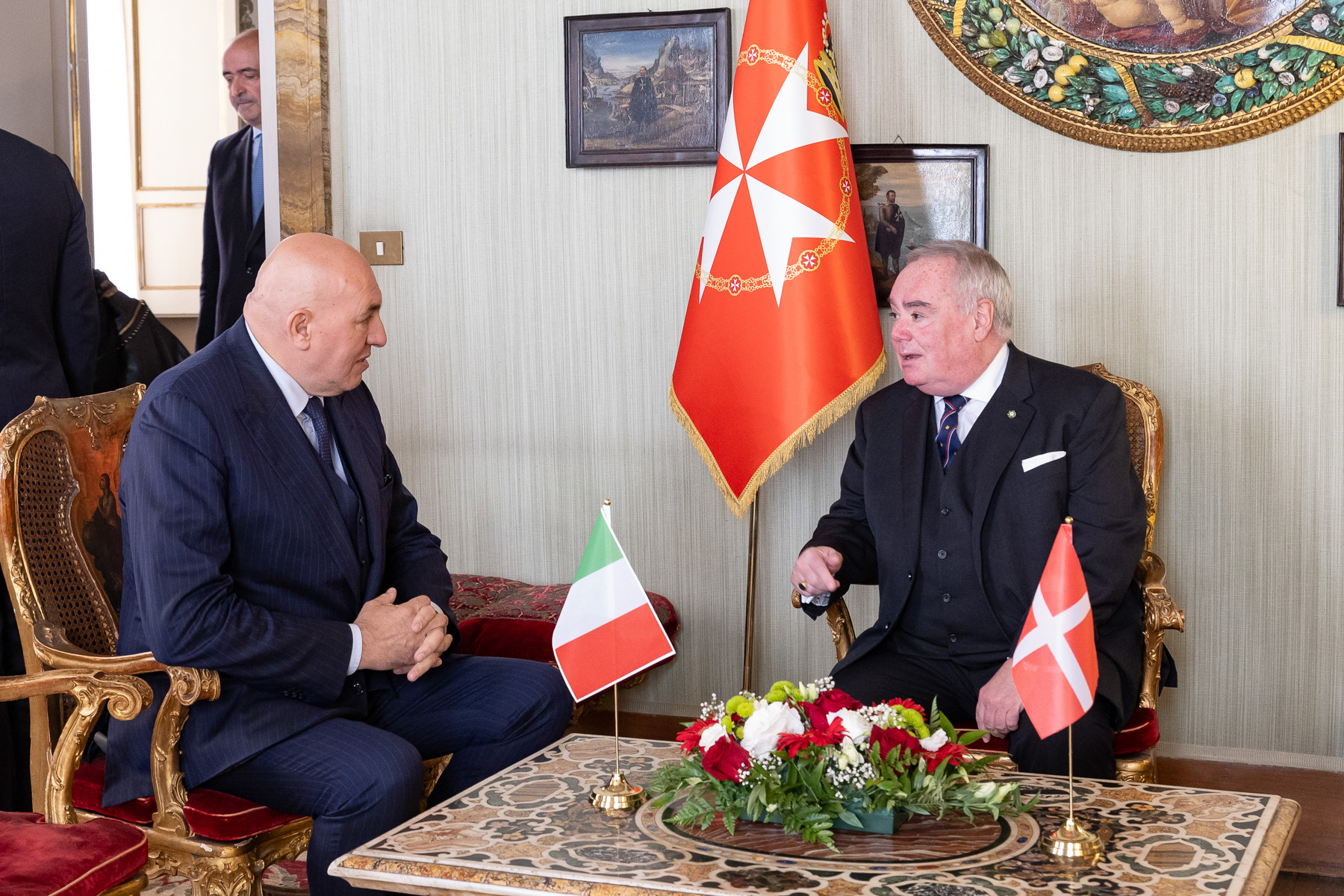Migrants and Refugees: Rome Meeting between Order of Malta’s European Project Managers
Rome 12 April 2018 – In the meeting held yesterday and this morning in the Magistral Villa, operation managers of the Order of Malta’s projects in Italy, France, Germany, Austria, Czech Republic and Hungary discussed the main challenges and best practices for long-term interventions aimed at migrants and refugees. Each representative brought the experience of his or her association or operating structure – also including Malteser International, the Order of Malta’s International relief agency – in managing migrant assistance, reception and integration projects.
For Italy, the fundamental contribution given by the Italian Relief Corps medical teams was stressed. Embarked on the vessels of the Italian authorities, they have had ten years of intense work in the Mediterranean Sea, enabling them to assist hundreds of thousands of migrants. Almost 1400 were rescued in just the first three months of this year.
The Order of Malta in Germany – with Malteser Werke, assisting migrants since 1989 – illustrated its wide-ranging reception and integration plan that includes courses in the German language and culture, psycho-social support, entry into employment and specific pathways for people with disabilities and victims of human trafficking. France, also present at the meeting, specialises in legal assistance for religious minorities fleeing from persecution and for immigrants kept in detention facilities. An important activity that in 2017 provided aid to 6.300 migrants and refugees.
Completing the European picture of a shared commitment were Austria, the Czech Republic and Hungary which, especially during the so-called Balkan Route in 2016, stepped up their relief and humanitarian assistance for migrants by deploying volunteers along the passage through eastern Europe to give aid and offer shelter, food and healthcare.
Also under discussion over the two days were the causes and consequences of the mass movement of people, destined to increase with the population growth in the southern hemisphere, the continuation of wars and climate changes. This latter factor is often underestimated and, as the Grand Chancellor Albrecht Boeselager pointed out: “if the international community does not seriously address the issue, it will cause a constant increase in the number of migrants”.
Drought and landslides are some of the main challenges facing Malteser International’s operators when managing natural disasters and humanitarian emergencies. The international relief agency has over 100 projects active in some 20 countries.









